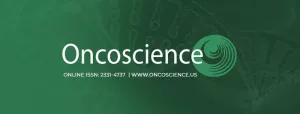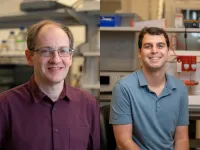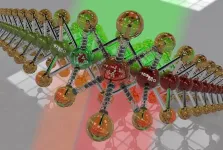(Press-News.org)
“[...] this editorial underscores the complex molecular diagnosis landscape of cancer in the [Latin American] population.”
BUFFALO, NY- May 3, 2024 – A new editorial paper was published in Oncoscience (Volume 11) on April 22, 2024, entitled, “Exploring oncogenic driver molecular alterations in Hispanic/Latin American cancer patients: A call for enhanced molecular understanding.”
In this new editorial, researcher Rafael Parra-Medina from Fundación Universitaria de Ciencias de la Salud and Instituto Nacional de Cancerología begins by discussing Latin America’s (LA) population — a heterogeneous mix of Amerindian, African, and Caucasian ancestries with different proportions in different regions. Countries such as Argentina, Brazil, Colombia, Costa Rica, Uruguay, and Venezuela have a higher proportion of Caucasian while regions in Mexico, Perú, and Bolivia have a higher proportion of Amerindian ancestries. Although the overall incidence of cancer in Latin American countries is generally lower compared to high-income nations, the mortality rate is notably higher.
“This disparity can be attributed to several factors, including smoking habits, diet quality, levels of physical activity, access to healthcare services, and availability of cancer screening programs [3].”
While advances in the understanding of oncogenic molecular alterations have led to targeted therapies improving outcomes, the diversity in this population poses unique challenges. The prevalence of mutations as lung cancer patients, for instance, varies significantly across different ethnic groups, indicating the need for tailored approaches in diagnosis and treatment.
“Therefore, we need to enhance molecular diagnostic, molecular research, and healthcare cancer patients access in LA is crucial for the effective management, reflecting the need for more personalized and region-specific medical interventions.”
Continue reading: DOI: https://doi.org/10.18632/oncoscience.597
Correspondence to: Rafael Parra-Medina
Email: rafa.parram@gmail.com
Keywords: Latin America, Hispanic, cancer, molecular, lung
About Oncoscience:
Oncoscience is a peer-reviewed, open-access, traditional journal covering the rapidly growing field of cancer research, especially emergent topics not currently covered by other journals. This journal has a special mission: Freeing oncology from publication cost. It is free for the readers and the authors.
To learn more about Oncoscience, visit Oncoscience.us and connect with us on social media:
X, formerly Twitter
Instagram
Facebook
YouTube
LinkedIn
For media inquiries, please contact media@impactjournals.com.
Oncoscience Journal Office
6666 East Quaker Str., Suite 1D
Orchard Park, NY 14127
Phone: 1-800-922-0957, option 4
###
END
Dead stars known as white dwarfs, have a mass like the Sun while being similar in size to Earth. They are common in our galaxy, as 97% of stars are white dwarfs. As stars reach the end of their lives, their cores collapse into the dense ball of a white dwarf, making our galaxy seem like an ethereal graveyard.
Despite their prevalence, the chemical makeup of these stellar remnants has been a conundrum for astronomers for years. The presence of heavy metal elements—like silicon, magnesium, and calcium—on the surface of many of these compact objects is a perplexing ...
A new study co-authored by Sophie Janicke-Bowles, associate professor in Chapman University’s School of Communication, sheds light on the role that new and traditional media play in promoting and affecting character development, emotions, prosocial behavior and well-being (aka happiness) in youth.
Her research and teaching focus on positive psychology, media and new communication technologies, and media and spirituality. The study, published April 13 in Society for Research in Child Development (SRCD), investigates how adolescents perceive ...
Researchers at the University of Toronto have found naturally occurring compounds in the gut that can be harnessed to reduce inflammation and other symptoms of digestive issues. This can be achieved by binding the compounds to an important, but poorly understood, nuclear receptor.
The gut microbiome hosts bacteria that produce compounds as by-products of feeding on our digestive remnants. The compounds can bind to nuclear receptors, which help transcribe DNA to produce proteins and non-coding RNA segments.
By identifying ...
HOUSTON – (May 3, 2024) – A team of chemists and bioengineers at Rice University and the University of Houston have achieved a significant milestone in their work to create a biomaterial that can be used to grow biological tissues outside the human body. The development of a novel fabrication process to create aligned nanofiber hydrogels could offer new possibilities for tissue regeneration after injury and provide a way to test therapeutic drug candidates without the use of animals.
The research team, led by Jeffrey Hartgerink, professor of chemistry and bioengineering, has developed peptide-based hydrogels that mimic the aligned structure of muscle and ...
Victims of financial abuse from their partner in England and Wales are being failed by an “inadequate” legal response, new research warns.
Coerced debt causes considerable harm. People often live with the effects of being forced to give money or take out loans or credit cards long after the abusive relationship has ended.
Using the law to tackle it is more complex than other forms of abuse because to be free of the harmful effects of the abuse people’s contractual liability for the debt may need to be set aside. The law often favours lenders, who have little obligation to ensure that transactions are free from coercion.
New research recommends ...
According to Rutgers Health researchers, training correctional officers in Mental Health First Aid (MHFA) for adults, a 7.5-hour national education program from the National Council of Mental Wellbeing, may help provide them with the necessary skills to effectively identify signs and symptoms of mental distress and advocate for incarcerated individuals facing mental health crises.
Led by Pamela Valera, an assistant professor in the Department of Urban-Global Public Health at Rutgers School of Public Health, ...
Research led by scientists at the Department of Energy’s Oak Ridge National Laboratory has demonstrated that small changes in the isotopic content of thin semiconductor materials can influence their optical and electronic properties, possibly opening the way to new and advanced designs with the semiconductors.
Partly because of semiconductors, electronic devices and systems become more advanced and sophisticated every day. That’s why for decades researchers have studied ways to improve semiconductor compounds to influence how they carry electrical current. One approach is to use isotopes to ...
Through a quirk of anatomy, women are especially prone to urinary tract infections, with almost half dealing with one at some point in their lives.
Scientists have been trying to figure out for decades how bacteria gain a foothold in otherwise healthy people, examining everything from how the microbes move inside and stick to the inside of the bladder to how they deploy their toxins to produce uncomfortable and often painful symptoms.
Research published in PNAS examines how the bacteria Escherichia coli, or E. coli—responsible for most UTIs—is able to use host nutrients to reproduce at an extraordinarily rapid pace during ...
Households with gas or propane stoves regularly breathe unhealthy levels of nitrogen dioxide, a study of air pollution in U.S. homes found.
“I didn’t expect to see pollutant concentrations breach health benchmarks in bedrooms within an hour of gas stove use, and stay there for hours after the stove is turned off,” said Stanford Doerr School of Sustainability Professor Rob Jackson, senior author of the May 3 study in Science Advances. Pollution from gas and propane stoves isn’t just an issue for cooks or people in the kitchen, ...
Most people have heard the famous phrase “the enemy of my enemy is my friend.”
Now, Northwestern University researchers have used statistical physics to confirm the theory that underlies this famous axiom.
The study will be published on May 3 in the journal Science Advances.
In the 1940s, Austrian psychologist Fritz Heider introduced social balance theory, which explains how humans innately strive to find harmony in their social circles. According to the theory, four rules — an enemy of an enemy is a friend, a friend of a ...







